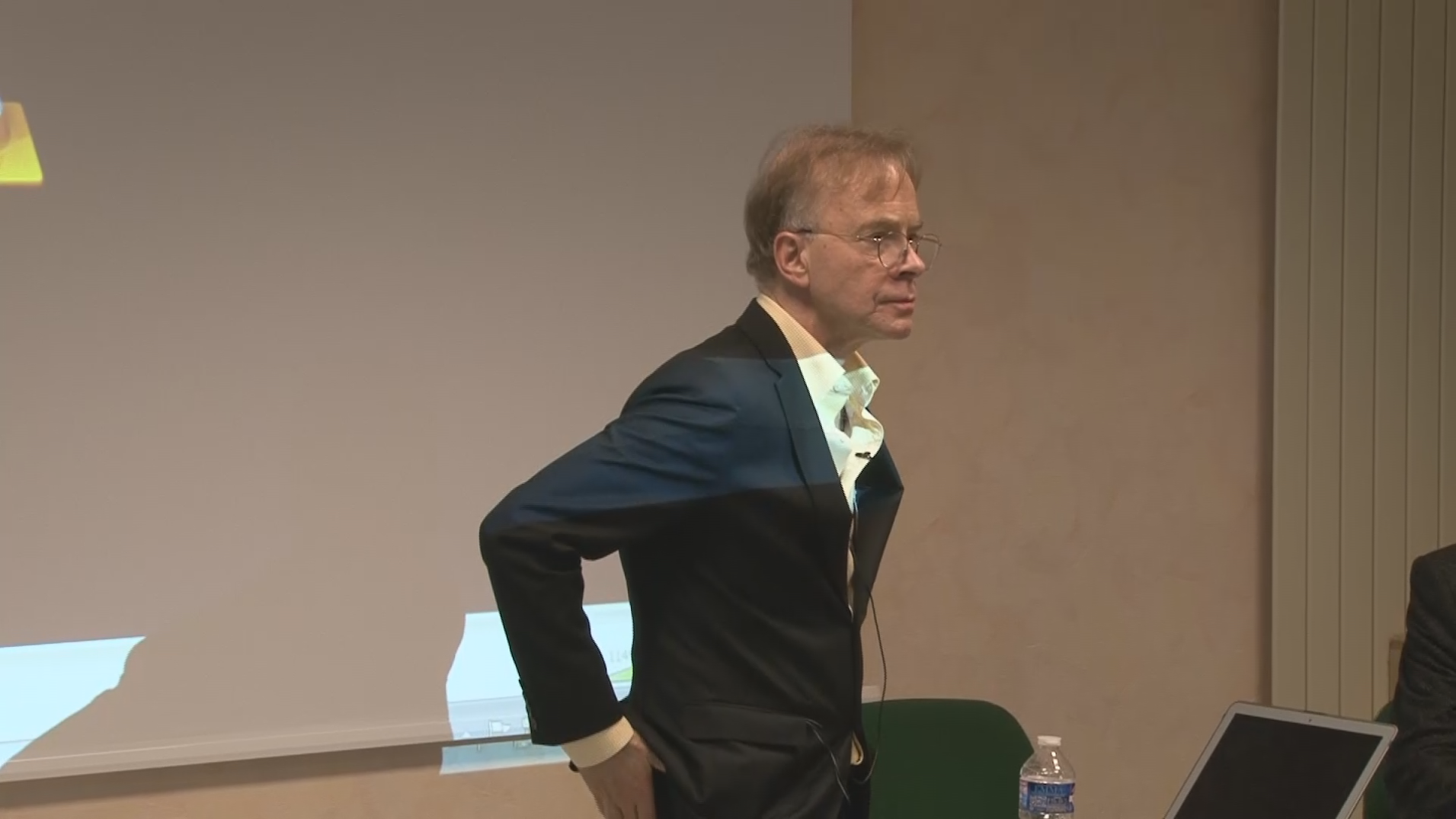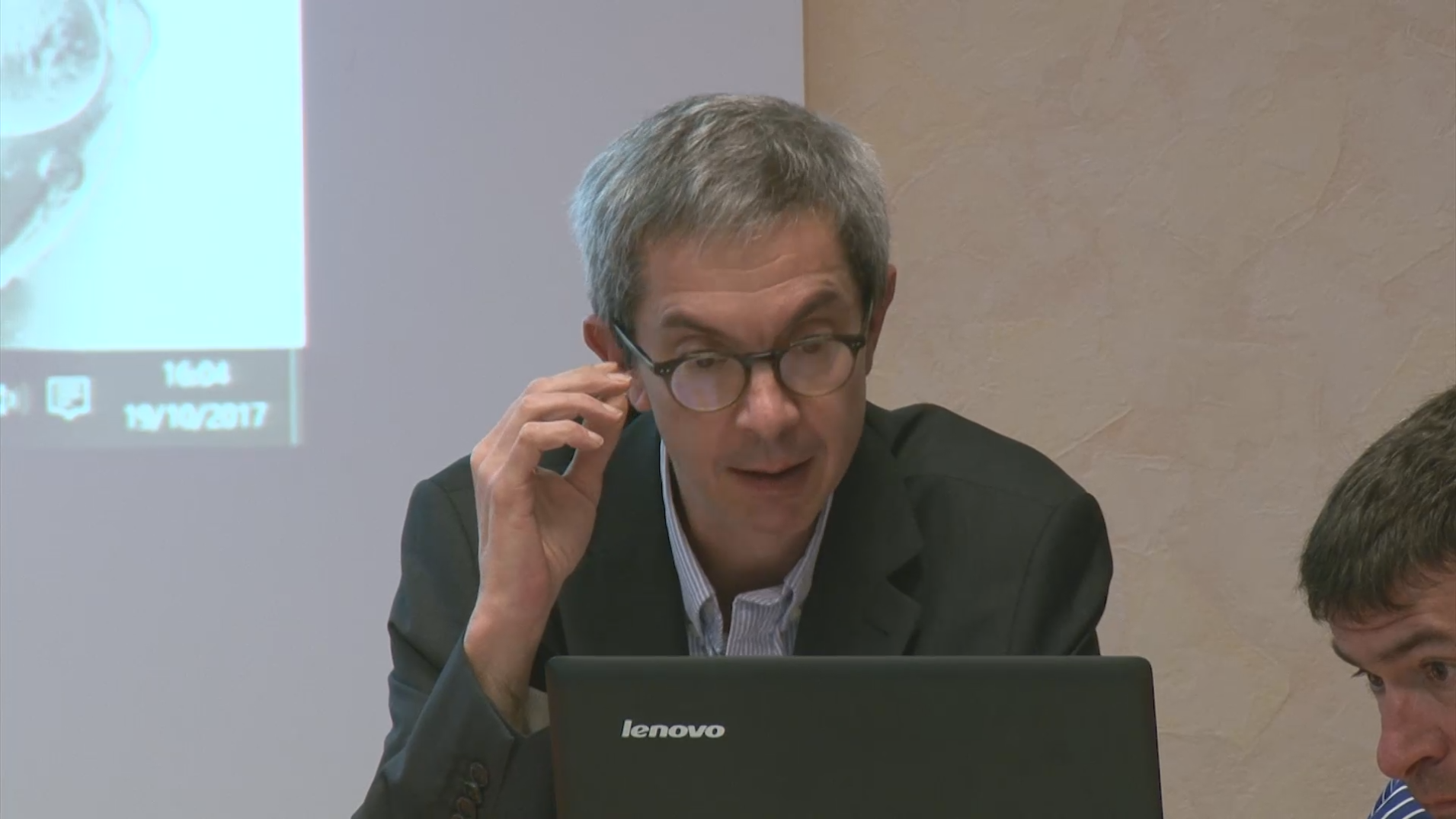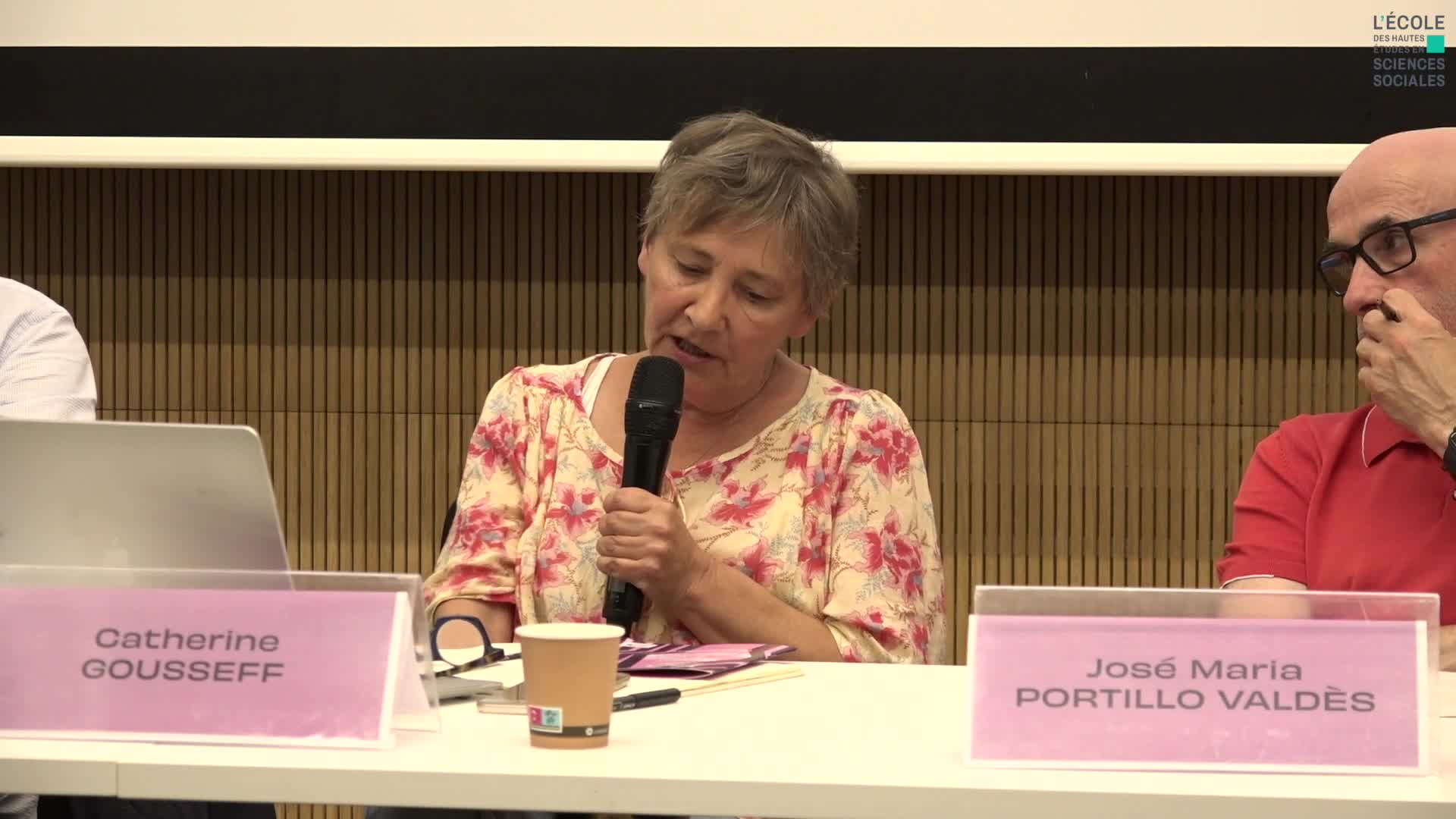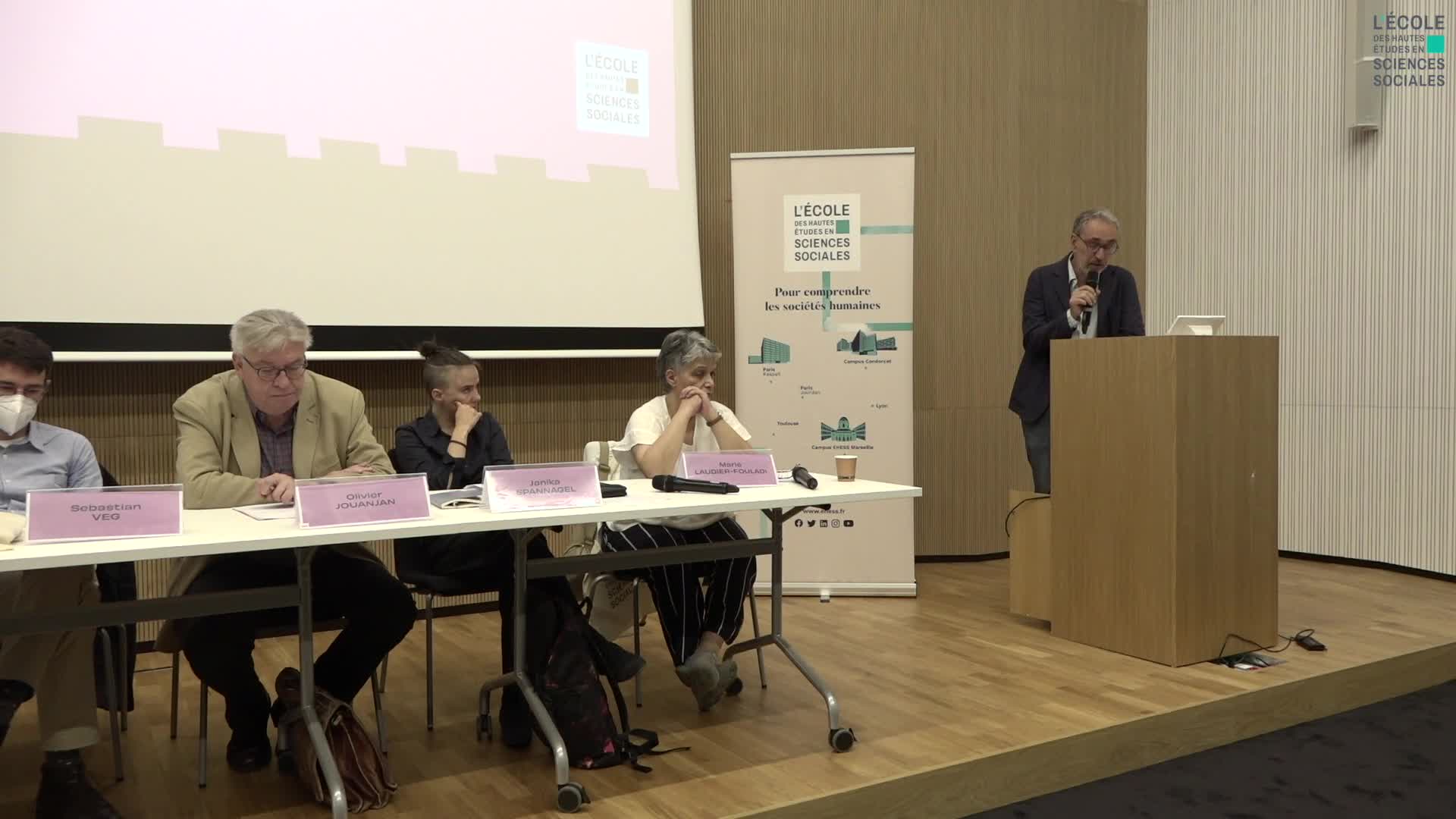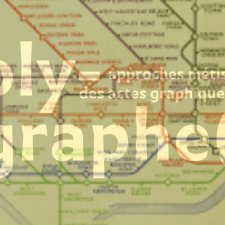Notice
ERIBIA 17-18 | Thinking Through American Movies : American Exceptionalism, Trumpocracy and Organizing for Social Justice (part1)
- document 1 document 2 document 3
- niveau 1 niveau 2 niveau 3
Descriptif
Séminaires ERIBIA 2017-2018 : Mémoires et oublis / Memory and Oblivion
Thinking Through American Movies : American Exceptionalism, Trumpocracy and Organizing for Sociol Justice (part1)
Joel PFISTER (Wesleyan University, Middletown, Connecticut, USA)
Modérateur : Thierry DUBOST
Présentation du conférencier :
Joel Pfister, Olin Professor of English and American Studies at Wesleyan University, has written six books, most recently Surveyors of Customs: American Literature as Cultural Analysis (Oxford UP, 2016), and co-edited one volume of essays, Inventing the Psychological: Toward a Cultural History of Emotional Life in America (Yale UP, 1997). He has served as chair of two departments: English and American Studies. Pfister began his graduate education in American Studies in Europe, at the University of London (M.A.), and also studied at Columbia University (B.A.), the University of Sussex (M.A.), and Yale University (Ph.D. in American studies).
Résumé de l’intervention :
Pfister previews a few key themes he is developing in his book-in-progress, Movies and the Americanization of Power, which reconsiders some movies from the 1930s to the present as innovative critical resources for American studies. Although movies are products and symptoms of “soft capitalism,” Pfister argues that some self-reflexively provide the most revealing critiques of Americanized “soft capitalism.” Some bluntly challenge the ideology of American exceptionalism. Moreover, some movies reframe America as a plutocracy that employs “democracy” as one way of “dressing-down" top-down power to look bottom-up (blatant in Trumpocracy). Although many movies reproduce ideologies of individualism, some offer provocative strategies for organizing for social justice. These movies teach us much about the Americanization of power.
Thème
Documentation
Dans la même collection
-
ERIBIA 17-18 | Ni haine, ni oubli : Le War Requiem de Benjamin Britten, Gilles Couderc_Conférence
Séminaires ERIBIA 2017-2018 : Mémoires et oublis / Memory and Oblivion « ‘Ni haine, ni oubli’ : Le War Requiem de Benjamin Britten », Gilles COUDERC (Université de Caen Normandie) Modérateur : Marcin
-
ERIBIA 17-18 | Ni haine, ni oubli : Le War Requiem de Benjamin Britten, Gilles Couderc_Temps d'écha…
Séminaires ERIBIA 2017-2018 : Mémoires et oublis / Memory and Oblivion « ‘Ni haine, ni oubli’ : Le War Requiem de Benjamin Britten », Gilles COUDERC (Université de Caen Normandie) Modérateur : Marcin
-
ERIBIA 17-18 | Thinking Through American Movies : American Exceptionalism, Trumpocracy and Organizi…
Séminaires ERIBIA 2017-2018 : Mémoires et oublis / Memory and Oblivion Thinking Through American Movies : American Exceptionalism, Trumpocracy and Organizing for Sociol Justice (part2) Joel
-
ERIBIA 17-18 | Alzheimer’s victims in fiction, Armelle Parey
Séminaires ERIBIA 2017-2018 : Mémoires et oublis / Memory and Oblivion “Alzheimer’s victims in fiction”, Armelle PAREY (Université de Caen Normandie) Modérateur : Véronique ALEXANDRE A venir sur
-
ERIBIA 17-18 | Play me a Lonesome Reel - 'A personal journey towards the formation of an aesthetic …
Séminaires ERIBIA 2017-2018 : Mémoires et oublis / Memory and Oblivion Desi WILKINSON (Limerick University, Ireland) Modératrice : Anne-Catherine de BOUVIER À venir en 2018 : 11 Janvier 2018
-
-
Sur le même thème
-
Les invasions biologiques : quelles perceptions par le public ?
ArbieuHugoUgo Arbieu, chercheur post-doctorant à l'université Paris Saclay, montre dans cette vidéo l'intérêt de la culturomique pour étudier la perception sociale des invasions biologiques.
-
Reconfigurations de l’aptitude à être affecté : de la réception à l’émancipation, Spinoza à l’épreu…
BaudeyMatthieuCe projet s’appuie sur une mission de terrain de quatre mois au Kazakhstan pendant laquelle il s’agit de mener des entretiens qualitatifs avec les membres de différents mouvements sociaux, culturels
-
JRSS 2022 - Session de clôture
Session de clôture des 16è Journées de Recherche en Sciences Sociales (15 et 16 décembre 2022) à la MSH de Clermont-Ferrand.
-
JRSS 2022 - Session d'ouverture
Session d'ouverture des 16è Journées de Recherche en Sciences Sociales (15 et 16 décembre 2022) à la MSH de Clermont-Ferrand.
-
Engagement dans les sciences sociales : contraintes et tensions dans le monde 2/2
VegSebastianКопосовНиколай ЕвгеньевичBehrValentinKarsentiBrunoJouanjanOlivierLadier-FouladiMarieLes sciences sociales, en tant que savoirs critiques et émancipateurs, sont exposées aux tensions politiques des contextes où elles se produisent.
-
Autorité et autonomie des sciences sociales : construire une communauté de pairs 4/1
KarsentiBrunoSabbaghDanielMarzoukiNadiaFabianiJean-LouisFriedlanderJudithTerziCédricOrléanAndréSi les connaissances produites par les sciences sociales peuvent jouir d’autorité dans l’opinion, c’est qu’elles se soumettent à des règles méthodologiques, à des modes d’administration de la preuve
-
Les sciences sociales dans la cité : demandes publiques, contraintes, expertises 2/1
DaucéFrançoiseBozarslanHamitPortilloJosé MaríaGousseffCatherineAktarO. CengizZevounouLionelLes sciences sociales sont dans un rapport intérieur à la cité qui justifie qu’on les interroge et qui fonde un certain nombre d’attentes légitimes à leur égard, que ce soit de la part des pouvoirs
-
Ouverture du colloque Sciences sociales en danger ? 1/1
ProchassonChristopheKarsentiBrunoThireauIsabelleOuverture du colloque Sciences Sociales en danger ? Pratiques et savoirs de l'émancipation, 22 et 23 septembre 2022 au Centre des colloques au Campus Condorcet, par Christophe Prochasson, président de
-
LES « DIT-ON » ET AUTRES RÉCITS PLUS SÉRIEUX - INTERVIEW DE JEAN-PAUL COLLEYN
ColleynJean-PaulInterview de Jean-Paul Colleyn dans le cadre de la sortie du livre, "Les « dit-on » et quelques autres récits plus sérieux" publié le 16 février 2023 dans la collection "54" des Éditions de la FMSH.
-
Anne Sedès et Nicolas Thély - À propos de #JournéeEcologieClimaRNMSH - Ouverture de la journée
ThélyNicolasSédèsAnneOuverture de la journée
-
La MSH de Clermont-Fd en 3'33
Découvrir la Maison des Sciences de l'Homme de Clermont-Ferrand en 3 minutes et 33 secondes...
-
Revue POLYGRAPHES
La revue POLYGRAPHE(S), approches métissées des actes graphiques est souhaitée comme un nouvel espace d'échanges intellectuels autour d'un vaste sujet d'étude commun, un lieu de rencontres et de




